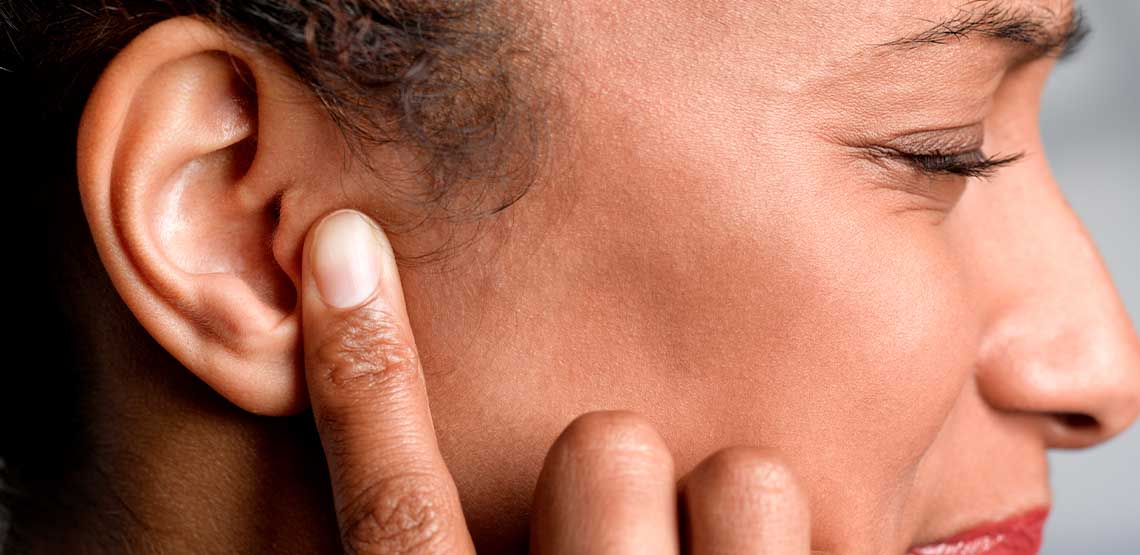Is There a Cure for Tinnitus?
Have you ever experienced an annoying ringing in your ears? If so, you may have been suffering from the medical condition known as tinnitus. In this article, we explore the condition and unpack what causes it, and more importantly, we look at options for treating or curing tinnitus. So, is there a cure for tinnitus? Let’s find out.
What is Tinnitus?
Tinnitus refers to the occurrence of ringing in the ears, either in one ear or both. Ringing is the commonly-used term, but tinnitus may also sound like buzzing, whistling, or squealing.
The noise may be constant and unrelenting, or it could come and go. As we will discuss, a variety of situations can cause the sudden onset of this ringing, which can be chronic and prolonged, or it can fade away in a short time.
The annoyance and distraction caused by the hallmark symptom of tinnitus can certainly be a hindrance to one’s quality of life. If the ringing is severe or continues, it can disrupt day-to-day activities, like the ability to concentrate on work or get restful sleep.
On the bright side, tinnitus does not cause permanent damage or hearing loss, though in many cases it is related to underlying hearing loss, injuries to the ear, or other medical causes, like circulatory problems.
Causes of Tinnitus
Have you ever walked out of a loud movie or concert and noticed a buzzing, ringing, or other agitating noise in your ears? If so, you are far from alone. In fact, some form of tinnitus affects an estimated 50 million Americans, or 15% to 20% of people. It’s often experienced by older individuals, but can occur at any age.
By far, the most common cause of tinnitus is exposure to damaging, loud noises – either for prolonged times, like at a concert, or one brief burst of sound, like a loud gunshot or explosion. 90% of those suffering from tinnitus have experienced some type of noise-induced damage to the inner ear (though again, the presence of ringing in the ears does not cause hearing loss – it is the other way around. Hearing ringing in one’s ears is a good indicator that damage to the ears has already occurred.)
Other common causes include a physical blockage in the ear, perhaps a buildup of wax or a blocked ear due to an infection. A side effect of certain medications, such as nonsteroidal anti-inflammatory drugs, among others, can be to blame, as can a head or neck injury affecting the mechanisms of the inner ear or the part of the brain responsible for hearing.
A wide variety of other illnesses or conditions have been linked to tinnitus ranging from thyroid diseases, anemia, chronic migraines, autoimmune issues, TMJ disorder, and many more. Physical changes, such as bone conditions affecting the middle ear, dysfunction in the tubes in the middle ear, or ear muscle spasms can all create the trademark buzzing or ringing.
In cases where no obvious cause exists for your tinnitus, always consult a medical professional to get to the bottom of it.
Who’s at Risk?
Individuals who are at a high-risk for developing tinnitus include physical laborers, carpenters, musicians, pilots, and others in careers where loud noises are commonplace. But again, one loud noise can be enough to cause tinnitus, so prolonged exposure is not the only risk factor.
What Are the Symptoms?
By far, the most common symptom of tinnitus is a ringing in either one or both ears. But the sound itself varies from person to person, and can also present itself as buzzing, humming, roaring, squealing, or other abnormal noises.
The volume can vary from very low to so loud it interferes with daily life. In most cases, the sound is subjective, meaning only the person with tinnitus can hear it. But in some cases where the tinnitus pulses in time to your heartbeat, a doctor may be able to also detect the noise.
Treatment Options
If your tinnitus is ongoing or interfering with your quality of life by disrupting sleep or making work or regular life impossible to focus on, do not hesitate to see a doctor. Your doctor will be able to perform a series of examinations and ask questions about your health, medical history, and any exposure to noise, so they can get to the bottom of your tinnitus. In some cases, an examination by an ear doctor will be needed.
A treatment option for your tinnitus will largely depend on the cause. For example, if a buildup of ear wax or an ear infection is to blame, once the blockage or infection is cured, then the ringing should subside. Or, hearing aids or cochlear implants may treat the ringing for those with hearing-loss as the cause of their tinnitus.
In cases where there is not a clear cause or the tinnitus is chronic and cannot be cured, certain therapies can be helpful, such as cognitive behavioral therapy to help make the tinnitus less noticeable or stressful. Anti-anxiety medications may also be helpful since long-term tinnitus can certainly cause or exacerbate stress and even depression.
How to Avoid Tinnitus
In all cases, prevention is always important. It’s critical to take care to protect your hearing around loud noises by wearing headphones, earplugs, or other protective gear if you know you are going to be exposed to loud noises. Even simple things like turning down your volume on the radio or always bringing earplugs to a concert are crucial for your long-term ear health and hearing!
